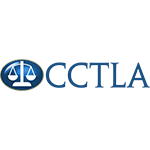Cutter Law, P.C. – Fighting for Social Workers’ Right to Overtime
We’re proud to hold those companies accountable for their actions and to obtain justice for the people whose money is illegally taken. Lawsuits filed by our firm have not only resulted in financial compensation to victims but also in policy and procedure changes at high-profile organizations, such as those seen in the Facebook lawsuit.

Across California and the country, some of the hardest working people in the world—social workers—are being denied their rights to fair pay for all the hours they work. Under a 2011 Ninth Circuit decision called Solis v. Washington, social workers in California, Oregon, Washington, Idaho, Arizona, Nevada, Hawaii, and Alaska are considered “non-exempt” under Federal wage and hour law. This means that social workers who are not paid overtime (one and half times their regular rate of pay) when they work more than 40 hours a week can sue their employers for back pay and penalties. The Fair Labor Standards Act or FLSA provides that social workers in these circumstances can sue their employers—including States, municipalities, and counties—for all their unpaid overtime, as well as attorney’s fees that must be paid by the employer upon settlement or after trial.
Quick Links
How the FLSA works
These cases are initially brought by one or more “representative plaintiffs,” who file the case along with their counsel. After the case is filed, the Court will approve a notice and “opt-in” period. Unlike most class actions, in a FLSA, in order to become part of the class of people claiming unpaid overtime, each employee has to “opt-in” to the case. After the court in each case approves a notice form, the employees can join the action by signing a “Consent to Sue” form that is filed with the court. Ordinarily, the employees will receive the form via mail or find it posted in their office. To join the case, the employees will have to sign the form and submit either to a third-party administrator or to the appointed class counsel. Employees are only allowed to opt-in to the action before and during the opt-in period. After the opt-in period expires, they will not be allowed to participate in the case, including if it settles.
How are Social Workers Being Denied Overtime?
What our firm has seen, repeatedly, is that social workers are being abused and exploited by management. Social workers want to do the best job they can for the vulnerable members of our community that they are helping. Management, however, wants to see that work done while spending the least as possible to compensate their employees. Two common schemes have emerged in these cases.
First, caseloads are assigned to social workers that they cannot possibly finish if they are working 40 hours a week. At the same time, overtime is strongly discouraged or even plainly forbidden. For example, we know of an office where social workers were required to request overtime several days in advance. But if a social worker is driving for work, and unanticipated traffic adds an extra hour to their trip, the social worker is out of luck, since she didn’t request overtime in advance.
Second, many social workers work under “flex time” or “comp time” arrangements. If their union contract allows it, or if they have a written agreement with the employee, an employer can offer “comp time” in lieu of overtime pay. Say a social worker works 42 hours in a week, the employer can, instead of paying for 3 hours of overtime (2 hours times 1.5 or “time and a half”), the employer can offer paid time off instead, that the employee can use later. But this paid time off also has to be “time and a half,” or 1.5 times the hours in excess of 40 worked. We have seen that social workers’ employers very regularly only offer “straight” comp time. In this example, the employee works 42 hours a week and gets 2 hours of comp time. But this is illegal under the FLSA. The employer must provide “time and a half” whether it is paying overtime or offering comp time in lieu of overtime.
Why Should A Social Worker Join One of These Cases?
Unlike other kinds of cases, if you do not opt-in to one of these cases, you are guaranteed to get nothing, even if you worked overtime and were not properly compensated for it. If you do opt-in, you will have to participate in discovery–the gathering of facts to support the case. You may have to assist counsel in responding to written discovery, and your deposition may be taken. Although this is inconvenient, it is a very important part of the process of proving these cases, and any deposition will be scheduled at a time and place convenient for you. But the alternative is to receive nothing and to do nothing about your employer’s illegal practices. These cases serve two purposes: not just to make sure the social workers or other employees who opt-in are paid for all their overtime, but to hold employers accountable for failing to pay their employees for all the wages they are owed.
What About Retaliation?
Most employees are concerned that if they help or participate in a case like this, they will be fired. It is a very reasonable concern. However, the law forbids employers from retaliating against their employees for standing up for their rights in a FLSA case. So, if you are concerned about retaliation, if you opt-in to a case like this, you *will* have some protection against retaliation. If your employer takes action against you because you participated in an FLSA suit, your employer is getting very bad legal advice, because the retaliation only opens the employer to additional liability for retaliation and/or wrongful termination.
$23.5 Million
Settlement won for government fraud in a whistleblower case against one of the world’s largest medical device manufacturers
$240 Million
Settlement in a nationwide defective medical device case involving defective pacemakers and cardiac defibrillators against Boston Scientific and Guidant
$12.95 Million
John R. Parker recently handled a case against the medical device company, Biotronik, Inc. for claims that they defrauded state and federal government agencies.
$4.7 Million
Brooks Cutter and John Parker obtained the settlement on behalf of our whistleblower clients in a case involving government fraud.
What is Cutter Law Doing for Social Workers?
Cutter Law partners Brooks Cutter and John R. Parker, Jr. were appointed lead counsel with their colleagues Megan Richmond and Alex Papaefthimiou in the case of Penny Pike et al. v. County of San Bernardino. This case was filed on behalf of a class of Department of Aging and Adult Services (DAAS) social workers who worked out of the DAAS offices in the City of San Bernardino. After two years of litigation, the Court approved a settlement in which the 26 class members received an award of $1,050,000.00, an average award of more than $40,000 for each social worker who agreed to participate in the case.
Cutter Law partners Brooks Cutter and John R. Parker, Jr. were appointed lead counsel with their colleagues Megan Richmond and Alex Papaefthimiou in the case of Phillips v. Riverside, which was brought on behalf of all the Child Services Division social workers in Riverside County. The Court approved-notice and consent form regarding this case can be found here.
Cutter Law partners Brooks Cutter and John R. Parker, Jr. brought this case with co-counsel Megan Richmond on behalf of a class of Department of Aging and Adult Services (DAAS) social workers that work (or have worked) out of the DAAS offices in the City of Victorville. The case is in its early stages. The opt-in form for the case can be found here. If you want to be part of this case, please contact our firm and one of our attorneys will answer whatever questions you have.
Cutter Law partners Brooks Cutter and John R. Parker, Jr. brought this case with co-counsel Megan Richmond on behalf of a class of Transitional Assistance Department workers who have worked for the County of San Bernardino. The case is in its early stages. The opt-in form for the case can be found here. If you want to be part of this case, please contact our firm and one of our attorneys will answer whatever questions you have.
Cutter Law partners Brooks Cutter and John R. Parker, Jr. brought this case with co-counsel Megan Richmond on behalf of a class of Public Guardian workers who have worked for the County of San Bernardino. The case is in its early stages. The opt-in form for the case can be found here. If you want to be part of this case, please contact our firm and one of our attorneys will answer whatever questions you have.
Contact Us Now!
If you have any questions about being part of one of the cases or are a social worker—or any other kind of worker, including other state, county, and municipal workers—who isn’t being paid for your overtime, please do not hesitate to contact us. We deeply appreciate the hard work you are doing, and are ready to fight for you!
Testimonials
Schedule A Free Case Review
"*" indicates required fields
Our Office Locations
Sacramento Office
401 Watt Avenue Suite 100
Sacramento, CA 95864
Phone: 916-290-9400
Oakland Office
Cutter Law P.C.
1999 Harrison Street Suite 1400
Oakland, CA 94612








